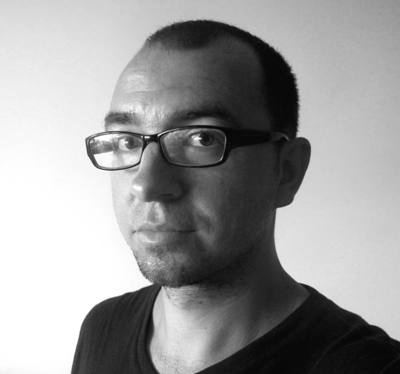January 2014 Published in Krytyka, Year XVII, Issue 11-12 (193-194) (p. 10–11)
Dreams of Europe
Western Europeans often talk about how they have lost their European vision, about how they concern themselves more and more with petty details rather than matters of great moment. This is simply because they have bright daylight all around them. When you can see everything around you, you have no need of a vision. You can do without auxiliary aids to help you see. The whole question of the "two Europes" – the "Europe of rules" and the "Europe of faith" – arises from a fundamental problem: a society cannot be built on faith without rules, or on rules without faith. Society cannot grow solely out of thoughts about matters of great moment, or solely out of a concern for petty detail. A society cannot be built only on emotions or only on cold logic.
We often talk about there being "two Ukraines", about how compatible or incompatible they are, how love draws them together and mutual distrust drives them apart.
However, we rarely notice that Europe also has two faces. They look in different directions and only occasionally see each other.
There is the Europe that presents a more or less emotionless face of rules and regulations. This Europe ends somewhere along the frontier between Germany and Poland. A kind of Euro-protestantism prevails: it has lost faith in European civilization but preserved its sense of morality. The European idea has been transformed into a set of rules and a collection of institutional procedures. Where there is no faith, rules become paramount.
The other Europe is spontaneous and emotional, the Europe of faith. This is Young Europe, comprising in the main the countries of the former socialist bloc. For the people living in these countries, Europe is still a vision, an ideal, utopia. They believe in Europe but often ignore its rules. For them Europe is a kind of mystical ecstasy in which they can forget about legal codes. In the face of Euro-catholicism and Euro-orthodoxy, they are filled with faith and ready to die for Europe, but not always ready to live for it. For them rules are too trivial for them to be concerned with.
Us Ukranians, we are that other Europe.
All that remains of the faith that western Europeans – the Euro-protestants – once had in the absolute value of Europe is a set of rules and regulations, and so they find it hard to understand us. They cannot grasp the significance of our European flags waving in the midst of tales from Ukraine's days of glory, the fires of revolution and nationalist slogans.
They do understand a great deal about our protests, but they still cannot comprehend what is most important about them: for us Europe is emotion, not rules. It is a far-off ideal, in which we have faith. Europe is a deity with whom we wish to unite, not the set of rules that an absent deity's high priest would have us live by.
Europe is also a light at the end of a tunnel. When do you need a light like that? Only when it's pitch black all around. Why else have the protesters made a symbol out of the simple act of switching on the torch in their mobile telephones in the middle of the night? Because each torch is a little light at the end of a little tunnel.
***
There is a paradox at the heart of the Ukrainian rebellion. It is an ideal milieu for society as a whole to live and grow in just the same way as a living organism lives and grows. But outside of the actual rebellion, there is virtually no such thing as society: there are only individuals and tribes – a "war of every man against his neighbour", in which no one trusts anyone else. People are divided into families, clans and groups, not only "there", "on the top of the heap", but also "here", "at the bottom".
However, human beings are creatures who can conceive of something greater than small communi...
We do critically important work in a world that increasingly neglects rational discussion and dialogue in favor of emotional proclamations. We need and deserve your full support. Please subscribe or become a sustainer by donating today.
❤ Thank you!
If you already are a subscriber, please
login here.
We are a not-for-profit organization and all earnings go entirely towards production of high-quality analysis on Ukraine and the region.
















Join the conversation!